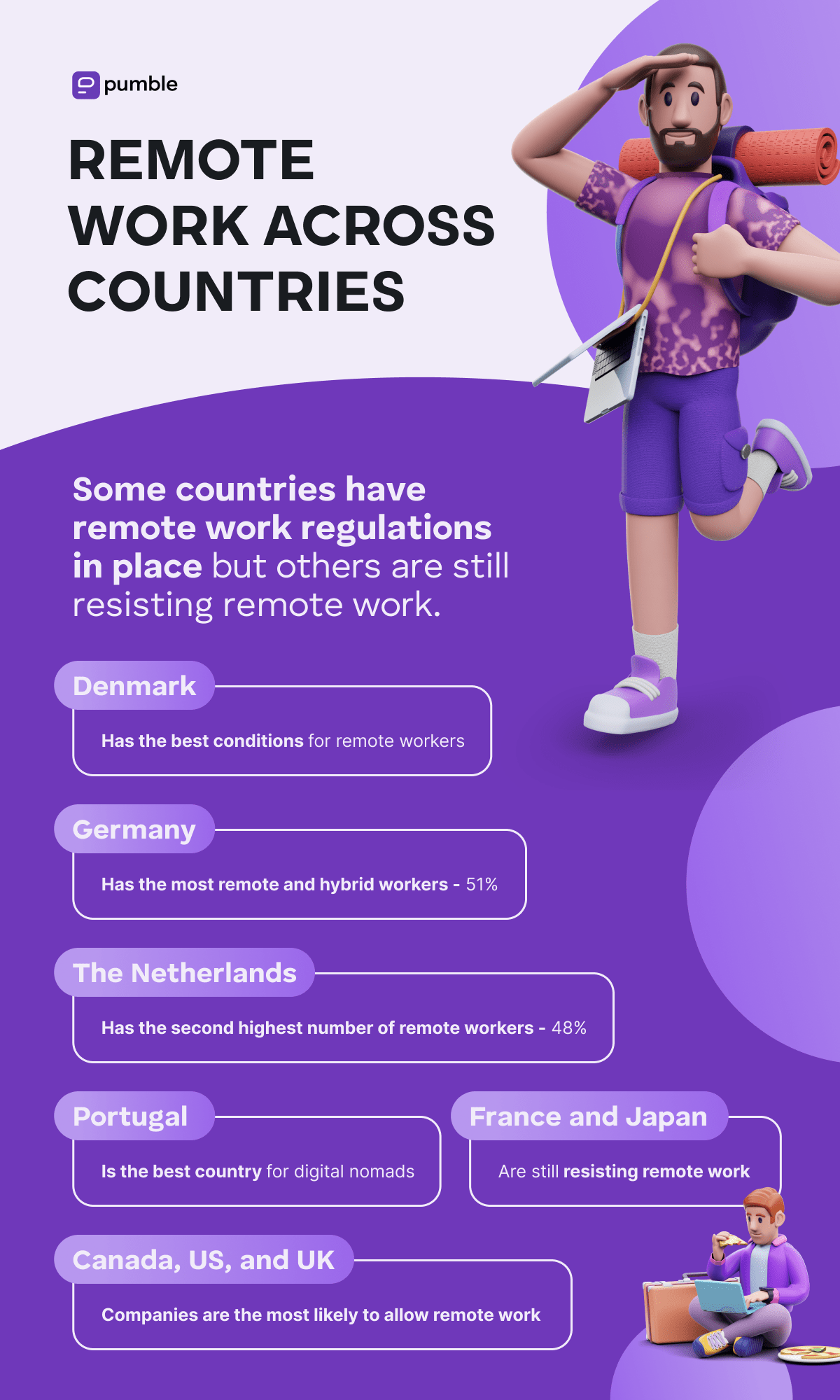Is the Netherlands a Great Choice for Remote Work in 2025?
Overview of Remote Work Trends in the Netherlands
Current Landscape of Remote Work Opportunities
The Netherlands is a front-runner in Europe's remote work revolution. A whopping 52% of the Dutch workforce frequently works from home, according to recent studies.

Major tech companies are pushing for office returns. However, smaller companies are actually increasing their remote hiring, which is relevant for those starting their tech careers.
Expected Growth in Remote Work Sectors by 2025
The tech job market in the Netherlands is projected to increase by 15% next year. Companies like Booking.com, ING Bank, and Philips are actively recruiting talent in AI, automation, and data infrastructure.
These roles often come with the option to work remotely at least part of the time. The Dutch tech scene is evolving fast, with significant investments in digital infrastructure and remote work tools.
Cost of Living in the Netherlands for Remote Workers
Breakdown of Living Expenses in Major Cities
Living costs in the Netherlands vary depending on the city. A one-bedroom apartment in central Amsterdam can cost around €1,500-€2,000 per month.

In less central areas or other cities like Rotterdam or Utrecht, prices may drop to approximately €1,000-€1,500. Monthly expenses, excluding rent, average around €1,360+ for a one-bedroom city center apartment.
Comparison of Cost of Living Across Different Regions
The Netherlands is cheaper than Switzerland or Norway. However, it is more expensive than Italy, Spain, or Estonia, according to Numbeo's cost of living index.
The high quality of life, excellent public services, and strong infrastructure make the cost of living worthwhile. Smaller cities and rural areas are more affordable than places like Amsterdam.
Best Cities in the Netherlands for Digital Nomads
Top Urban Areas for Remote Work
Amsterdam is a vibrant cultural scene with an extensive public transport network. Rotterdam offers a dynamic urban environment with a strong focus on innovation.
The Hague combines cultural heritage with a high quality of life. These cities provide a supportive expatriate community and a major international port.
Amenities and Resources for Digital Nomads in Each City
Amsterdam is overflowing with cool cafés where you can work from. Plus, there's also something going on in the city like food trucks, cool festivals, and an attractive atmosphere.

English is widely spoken in Amsterdam. You won't have a problem communicating and getting around.
Rotterdam is another famous city many digital nomads love visiting. It's Europe's largest seaport with stunning architecture and a food scene that is just as varied and delicious as Amsterdam.
Visa Requirements for Remote Work in the Netherlands
Overview of Self-Employed Residence Permit
The Netherlands offers a self-employed residence permit, which is equivalent to a digital nomad visa. This visa allows you to enter the Netherlands and reside there as a foreign professional.
The process to obtain this permit varies based on your nationality. It is easier for citizens from other EU nations, Switzerland, Turkey, or Japan.
Step-by-Step Application Process for Non-EU Citizens
Non-EU/EEA citizens must obtain a Dutch residence permit for stays longer than 90 days. The application process involves submitting a valid passport, proof of income, health insurance, and the completed application form.

Your employer or sponsor typically handles this process if you are applying through them. The residence permit allows you to reside in the Netherlands for an extended period, work legally, and access local services.
Important Documents Needed for Visa Applications
You need a valid passport, passport-sized photos, and a visa application form. Proof of outbound travel, health insurance, and accommodation are also required.
If applying for a work visa, you need proof of employment. Some visas may require a police clearance certificate.
Conclusion: Is the Netherlands the Right Choice for You?
Summary of Benefits and Drawbacks
The Netherlands offers a high quality of life, excellent infrastructure, and a strong economy. However, it has a high cost of living, especially in cities like Amsterdam.
The Dutch work culture emphasizes work-life balance and English is widely spoken. Remote work opportunities are growing, particularly in tech.
Final Thoughts on Living and Working Remotely in the Netherlands
The Netherlands is a great choice for remote work in 2025. It is a front-runner in Europe's remote work revolution, with 52% of the workforce frequently working from home.
The tech scene is evolving, with companies investing in digital infrastructure. Cities like Amsterdam, Rotterdam, and The Hague offer vibrant environments for digital nomads.
Additional Resources for Remote Workers in the Netherlands
For more insights on remote work in the Netherlands, visit Remote Work Europe. You can explore topics like streamlining remote productivity and the environmental benefits of remote work.
Understand any employer limitations that might affect where you can work. Learn about the Dutch healthcare system, which requires all residents to have health insurance.
FAQs About Remote Work in the Netherlands
What is the trend of remote tech jobs in the Netherlands in 2025?
Remote tech jobs are growing, with a projected 15% increase in openings. Companies are offering flexible arrangements, emphasizing hybrid work environments.
Which companies are actively hiring for remote tech roles in the Netherlands?
Booking.com, ING Bank, and Philips are actively recruiting. They offer options to work remotely part of the time in AI, automation, and data infrastructure.
What skills are necessary to succeed in a remote tech job in the Netherlands?
Proficiency in digital collaboration tools and project management is essential. Familiarity with cloud computing platforms like AWS, Azure, and Google Cloud is valuable.
How can job seekers stand out in the competitive remote job market?
Showcase remote work experience. Customize application materials to highlight remote capabilities.
Utilize specialized job boards like FlexJobs and We Work Remotely. Networking and continuous learning are also crucial.
What is the importance of continuous learning in securing remote tech jobs?
Continuous learning is crucial due to the rapid evolution of the tech landscape. Upskilling in areas like AI and quantum computing is essential.
Focus on both technical and soft skills. Staying updated on emerging technologies helps remain competitive.
Key Takeaways:
- The Netherlands is a leader in remote work, with 52% of the workforce frequently working from home.
- Cost of living varies, with Amsterdam being more expensive than smaller cities.
- Amsterdam, Rotterdam, and The Hague are top cities for digital nomads, offering vibrant environments and necessary amenities.
- A self-employed residence permit is available, allowing remote work and requiring specific documentation.
- Continuous learning and networking are essential to stand out in the competitive remote job market.
